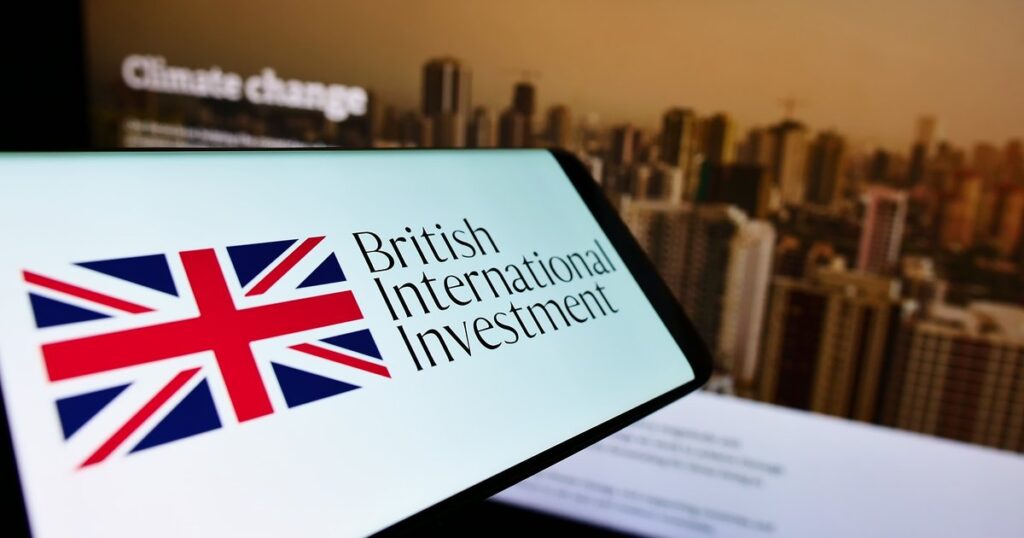BII Commits $60M to Green Investment Partnership to Scale Climate Finance Across Southeast Asia

• British International Investment’s (BII) $60 million investment supports the $510 million Green Investment Partnership (GIP) under Singapore’s FAST-P framework.
• The initiative aims to close Southeast Asia’s $210 billion annual climate infrastructure gap through blended finance.
• GIP will fund decarbonisation projects in renewables, e-mobility, circular economy, and bioenergy, beginning in 2025.
London and Singapore Partner to Bridge Asia’s Climate Finance Divide
British International Investment (BII), the UK’s development finance institution and impact investor, has committed $60 million to the Green Investment Partnership (GIP) managed by Pentagreen Capital — an effort designed to expand private capital flows into Southeast Asia’s green infrastructure sector.
The investment forms part of the Financing Asia’s Transition Partnership (FAST-P), a framework launched in 2023 by the Monetary Authority of Singapore (MAS) to mobilise blended finance for climate projects in one of the world’s most energy-intensive growth regions.
Southeast Asia requires an estimated $210 billion in annual investment for climate-resilient infrastructure to meet its 2030 targets, a level of spending that public finance alone cannot sustain. GIP was established to address this shortfall by combining public, private, and philanthropic capital to fund projects with both environmental and commercial impact potential.
Mobilising Capital Through Blended Finance
GIP has already secured $510 million in committed capital from a mix of institutional investors, development banks, and philanthropic backers. The fund’s structure blends concessional and commercial financing to de-risk early-stage climate investments, making them viable for mainstream investors.
BII’s participation includes $10 million drawn from the UK’s £100 million mobilisation facility, first announced by Prime Minister Rishi Sunak during the 2024 UN General Assembly. The facility was designed to catalyse green investment in emerging markets and crowd in private finance for sustainable infrastructure.
“GIP exemplifies the power of blended finance,” said Leslie Maasdorp, CEO of BII. “By bringing together development, public, and private capital, we are unlocking opportunities that might otherwise remain out of reach. This investment accelerates the low-carbon transition in Southeast Asia and demonstrates how innovative technologies and business models can drive real change.”
BII’s capital commitment played a critical role in achieving GIP’s first close, helping to strengthen its credit profile and attract follow-on investment from commercial players.
First Projects: Bioenergy and Utility-Scale Solar
GIP’s initial portfolio reflects its focus on scalable decarbonization. Its first investment will finance a bioenergy programme with BECIS Bioenergy, which converts agricultural waste and sustainably sourced biomass into renewable steam. The project is expected to reduce more than 100,000 tonnes of CO₂ emissions annually while supporting rural economies dependent on agriculture.
A second investment involves a renewable energy portfolio managed by ib vogt, comprising utility-scale solar farms and battery storage systems across multiple Southeast Asian markets. These assets are projected to cut an estimated 257,000 tonnes of emissions each year, while reinforcing regional grid stability.
Both projects are positioned to demonstrate replicable models for private sector participation in low-carbon infrastructure, particularly in markets where project-level risks and policy uncertainty have traditionally deterred institutional investors.
RELATED ARTICLE: British International Investment Agrees $52 Million Loan to DBL Group for Green Spinning Facility
UK-Singapore Collaboration on Sustainable Finance
The Green Investment Partnership reflects a deepening collaboration between the UK and Singapore on climate finance. Through FAST-P, MAS and its partners aim to channel blended capital into priority sectors such as renewable energy, electric mobility, circular economy infrastructure, and emerging carbon solutions.
“The UK’s commitment to the Green Investment Partnership demonstrates our determination to mobilise private capital for climate action at scale,” said Nik Mehta, British High Commissioner to Singapore. “By co-investing alongside Singapore and other partners through FAST-P, we can unlock substantial private investment for clean energy and sustainable infrastructure, driving both growth and green jobs across Southeast Asia.”
The UK government has framed the initiative as a model for how G7 economies can use catalytic capital to enable climate finance flows into developing regions.
Strategic Implications for Global Climate Finance
For institutional investors and development finance agencies, GIP represents a growing class of “transition-aligned” vehicles that blend impact objectives with financial discipline. Its design is closely aligned with the principles of the Glasgow Financial Alliance for Net Zero (GFANZ) and complements frameworks emerging under the G20 Sustainable Finance Roadmap.
BII’s involvement adds to a series of recent UK-linked climate investments in Asia and Africa as the institution works toward allocating 30% of its portfolio to climate finance by 2030.
As GIP begins deploying capital this year, its success will be closely watched by policymakers and investors seeking scalable models for climate infrastructure financing. For Southeast Asia — one of the most exposed regions to climate risk — unlocking blended finance at this scale could determine how fast the region transitions toward a low-carbon and resilient growth path.
Follow ESG News on LinkedIn












